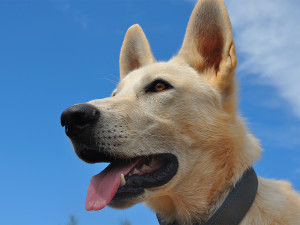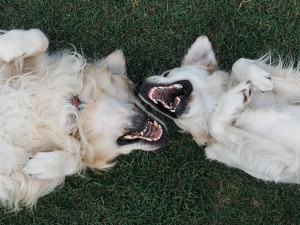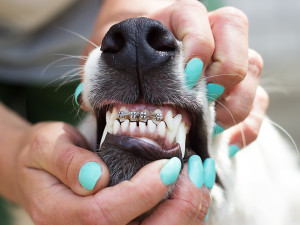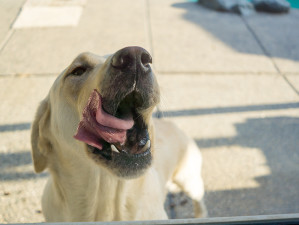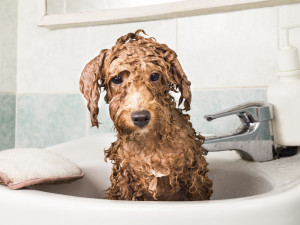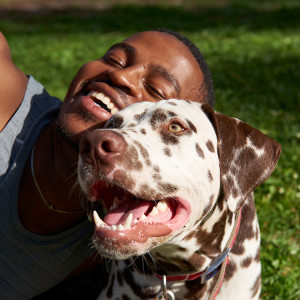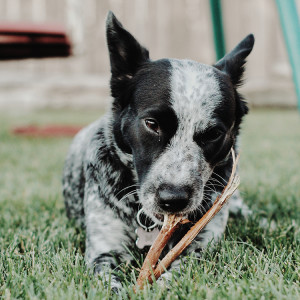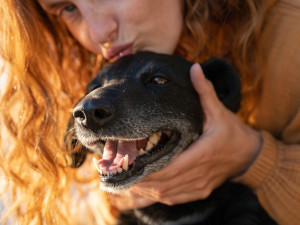Here’s Why Your Dog’s Breath Is the Worst
It might be a sign of a bigger issue.
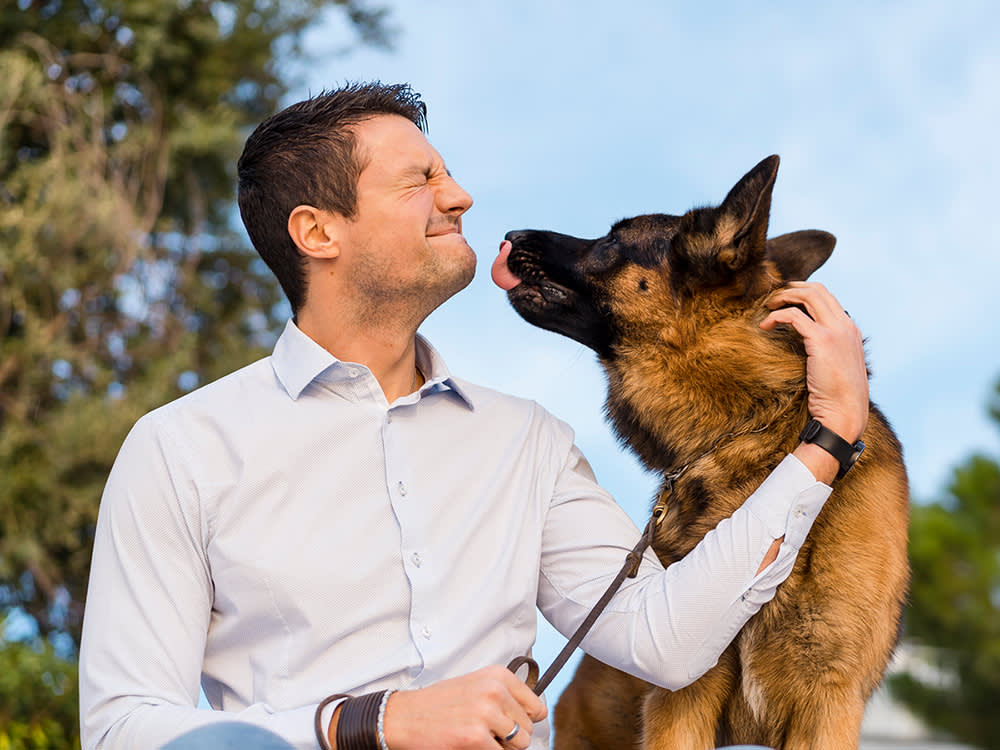
share article
It’s a classic problem: You’re bending down to give your bestie a big ol’ kiss on their perfect nose, but the sweetness of the moment is ruined by a not-so-sweet smell coming from their snout. Dogs aren’t exactly known for minty-fresh breath — partially our fault for spoiling them with bacon-flavored treats — but strong stenches are often a sign of a bigger problem.
Halitosis is the fancy word for bad breath, and it can point to underlying issues. It’s most often attributed to dental disease, but there are many other reasons for stinky kisses that should be on your radar.
Causes for a Dog’s Bad Breath
Is your dog’s bad breath a symptom of something more serious lurking below? Below are some of the main culprits.
Metabolic:
There are several metabolic causes of bad breath in dogs; these include diabetes and uremia.
Diabetes in dogsopens in a new tab causes sweet-smelling breath.
Uremia develops with kidney failure when the body cannot clear urea and nitrogen waste products from the blood. With kidney problems, you’ll likely find your dog’s bad breath smells like ammonia.
Respiratory:
There are several respiratory causes of bad breath in dogs; these include cancer and foreign objects.
Inflammation of the sinuses or nasal passages
Canceropens in a new tab/tumors
Foreign objects up the nose, such as a piece of stick, food, or even a lodged foxtailopens in a new tab
Mouth diseases:
Diseases of the mouth, infection of gums and teeth, and your “basic” dental diseaseopens in a new tab are also common causes of bad breath in dogs.
Ulceration of the tissues of the mouth, which can happen with kidney diseaseopens in a new tab or other trauma
Inflammation of the throat or tonsils
Cancer/tumors
Foreign objects
Bacterial, fungal, and viral infections
Dietary:
There are several dietary causes for bad breath in dogs, including what type of food or non-edible items your dog might eat.
Eating offensive-smelling food
Eating other odorous substances, such as fecesopens in a new tab
Trauma:
Believe it or not, other causes of bad breath in dogs include electric cords and consuming laundry detergent.
Electric-cord injuries, such as biting a live wire
Fractures
Exposure to caustic agents, such as Tide detergent (seriously)
Miscellaneous:
There are several other causes of bad breath in dogs; these include infection of the skin and autoimmune diseases.
An autoimmune condition where the body can attack itself because it “sees” its own tissues as foreign
Diseases caused by masses in the mouth containing a type of white blood cell known as an eosinophil or eosinophilic granuloma complex
An infection of the skin folds around the lips known as lip-fold pyoderma
Diagnosing Bad Breath
Bad breath in dogs is an easy diagnosis to make: Just smelling your dog’s breath at home is the first step. If there is a funky odor, halitosis is present, and there’s a problem. As the list above illustrates, a full spectrum of potential sources of bad breath exist, and as varied as these potential causes can be, sometimes the first clinical sign observed in many of them is odor.
If the diagnosis is not obvious from a peek in the mouth (such as a rotten tooth), you will need to take steps to check for other diseases. Once your vet discovers the cause of the bad breath, they can tell you what to do next.
The major takeaway message is that halitosis is not a disease in itself, but that bad breath in dogs is a sign of disease. While bad breath generally indicates an unhealthy mouth, there are many potential causes, and you should definitely take your pup in for a vet visit.
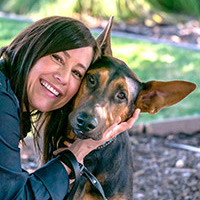
Dr. Shea Cox, DVM, CVPP, CHPV
Dr. Shea Cox is the founder of BluePearl Pet Hospice and is a global leader in animal hospice and palliative care. With a focus on technology, innovation and education, her efforts are changing the end-of-life landscape in veterinary medicine.
Related articles
![Labrador retriever licking their lips]() opens in a new tab
opens in a new tabWhy Do Dogs Eat Poop?
What to do when your dog has questionable tastes.
![A dog getting his face scrubbed with soap.]() opens in a new tab
opens in a new tab7 Ways Baking Soda Can Keep Your Dog (And Your House) Clean
This pantry staple is about to become your new secret cleaning weapon.
![A smiling man with short black hair sitting on the grass outside leaning on his Dalmatian dog who is also smiling showing clean teeth]() opens in a new tab
opens in a new tab12 Dental Products to Keep Your Dog’s Teeth Gleaming
The toothbrushes, dental wipes, and breath fresheners that’ll keep your pup smiling.
![Dog in the grass outside chewing on a bully stick]() opens in a new tab
opens in a new tabChew on This: A Guide to Safe and Not-So-Safe Dog Bones
Two experts — a veterinary dentist and internist — rate the most popular dog bones.
![Close up of red headed woman holding a black dog's face showing his teeth]() opens in a new tab
opens in a new tabThey’re Just Like Us: Dogs Get Gingivitis
Dogs can suffer from gum disease, too. Here’s how to prevent it.
- opens in a new tab
Why Does My Dog Stink? Tips for Smelly Pups
Help! Why does my dog smell so bad?
